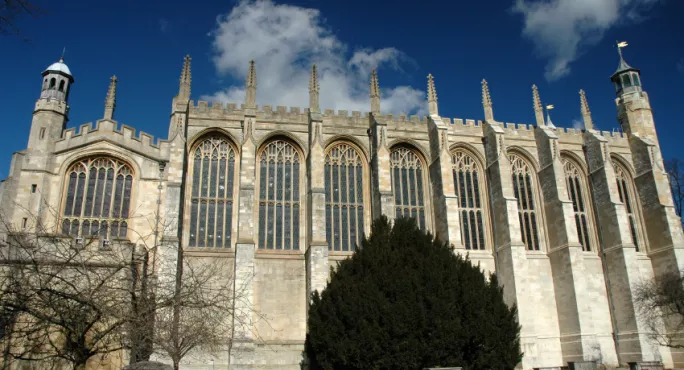‘It’s time to charge foreign billionaires more than the British middle classes for an independent school education’

For Britain’s middle classes, an independent school education was for many years a pricey but affordable ambition for their children. The fees may have been a struggle, but the quads and playing fields were within their reach.
But fees have risen six-fold since the 1950s and tripled, in real terms, since 1980.
The new Independent Schools Council (ISC) census published today reports that fees now range from just over £3,000 per term for a typical day school in Wales to just over £5,000 per term for a typical day school in London. And for those with children who board, the average fee is now £10,723 for those in the sixth form.
The appetite of overseas parents for British schools is insatiable - although their children still make up a tiny proportion of the overall independent school population, the numbers are growing. There are currently 27,211 non-British pupils whose parents live overseas, which represents just over 5 per cent of the total.
The independent sector as a whole likes to promote its scholarships and bursaries as a route to affordability, but these are scarce and highly competitive and, typically, cover only a small proportion of the fees. But there is something that schools can do: just as British universities have a two-tier fee system for home and overseas students, so should our independent schools. They should simply charge foreign parents more than British ones. It is as simple as that.
Action is needed because the current situation is murky. There are schools that discreetly charge overseas parents higher fees by soliciting donations, sometimes rather shamelessly, while offering discounts to UK parents via bursaries.
But is a school that accepts a registration fee from a British parent on the understanding that their son or daughter will have an honest chance of admission behaving fraudulently by prioritising an application from a foreign parent who is ‘donating’ sometimes as much as half a million pounds? I recall one case where a ‘gift’ of £250,000 was agreed but the development director got in touch a few weeks later to request that the sum was doubled.
I believe the reputation of the British independent sector for fair play, acquired over centuries, is being tainted by the behaviour of schools that are party to this type of behaviour. That’s why it’s time to get a fees differential out into the open.
And I practise what I preach: our Carfax College in Oxford is the first independent school in Britain to openly charge British parents less than their foreign counterparts.
We see many British pupils whose parents can simply no longer afford school fees. They decide to opt for small class sizes and one-to-one attention, in many cases at half the price we charge to our overseas students.
Ironically, in many cases schools actually take a financial hit from admitting overseas pupils. They enrol foreign students via agents, many of whom make no charge to parents because the market is so competitive. It is the schools that pay for their service through, typically, a 10 per cent commission. So we have a situation where schools actually receive less from foreign parents, who would often happily pay more in any case!
Quite apart from affordability, higher fees are also justified by the extra support overseas pupils need from boarding school staff, especially in the first term or so, as they settle into an unfamiliar environment.
These children are living in a foreign country far from home. They aren’t used to public school life or a disciplined approach to learning and often need a lot of additional help from busy teaching and pastoral staff if they’re to make a success of their time in Britain.
Drops in pupil numbers from British families are leaving many smaller independent schools struggling for survival. They operate on incredibly tight margins; a few extra thousand pounds can save them from closure. Not only would higher overseas fees support lower fees for British pupils; they can also be used to provide scholarships for especially talented pupils, irrespective of where in the world they come from.
So take it from me: ‘Nikita’s’ mum and dad may not be delighted to learn that they’re paying more for their children’s education than the home market, but most will wonder why our schools haven’t taken this common-sense step before.
Alexander Nikitich is founder of Carfax Education Group
Keep reading for just £1 per month
You've reached your limit of free articles this month. Subscribe for £1 per month for three months and get:
- Unlimited access to all Tes magazine content
- Exclusive subscriber-only stories
- Award-winning email newsletters